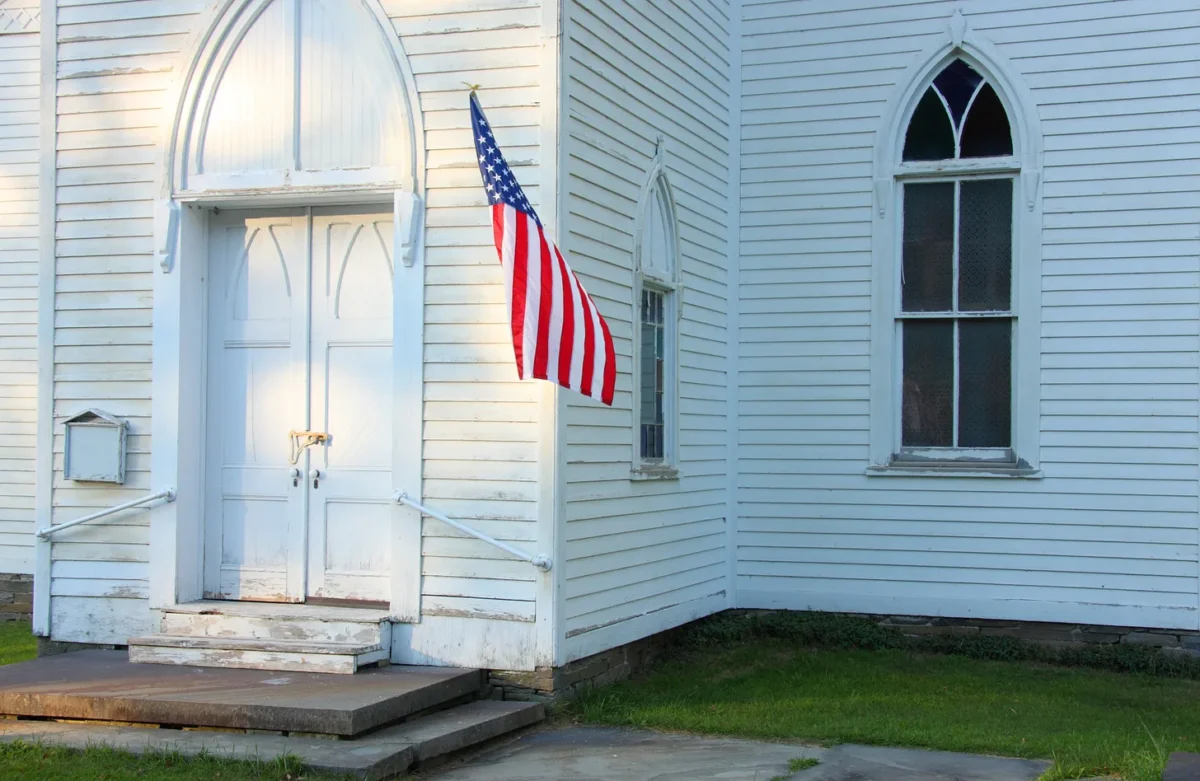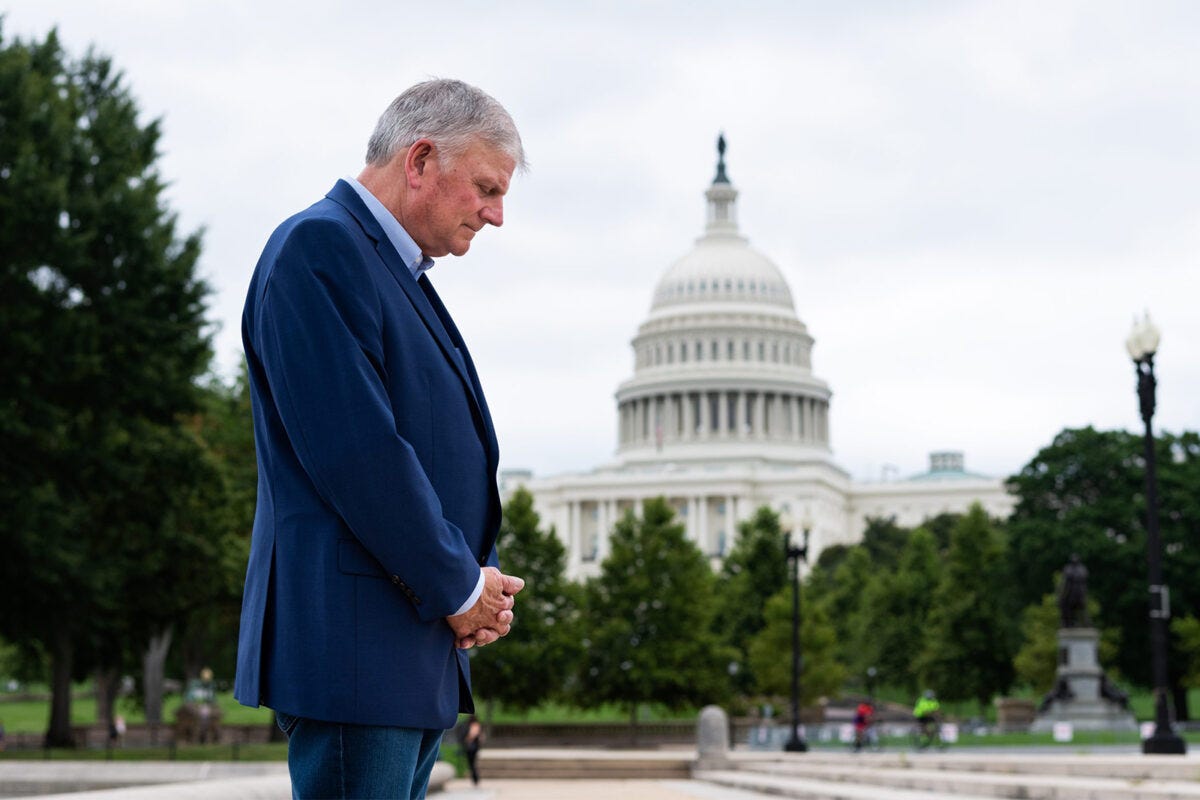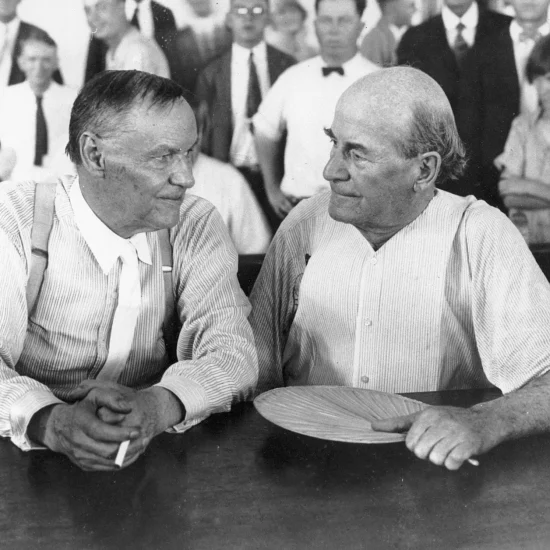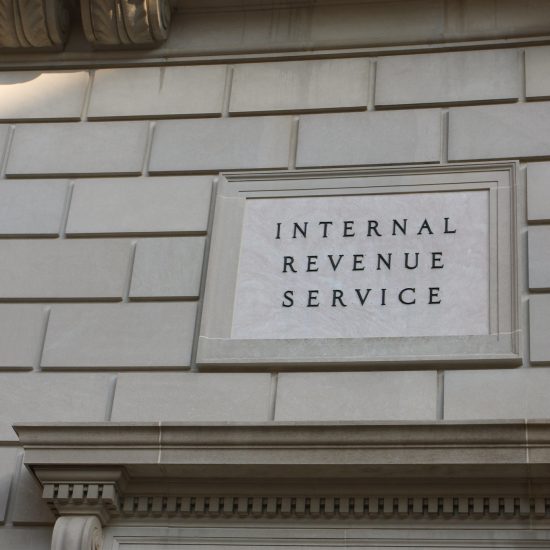
NOTE: Paid subscribers to A Public Witness are invited to join us for a special virtual launch event for Baptizing America on June 3 at 3 pm (ET). We’ll be joined by an all-star panel: Dr. Diana Butler Bass, Rev. Adriene Thorne, and Dr. Andrew Whitehead. We’ll be providing Zoom details later, but mark it on your calendar so you can join us.
“Christian Nationalism doesn’t exist,” Franklin Graham declared in 2021. “[It’s] just another name to throw at Christians.”
That kind of denial is understandable from those who buy into the ideology but are worried others are far less likely to support its goal of merging religious and national identities in defense of a retrograde social order. Portraying themselves as victims of persecution rallies followers to their side and soft-pedals the extremism of their views. It serves a valuable purpose in accomplishing their agenda.
Such rhetoric is much more surprising when spoken by someone who self-describes as being in the progressive, mainline Protestant “camp.” Yet, that’s the message offered in essays and interviews by Dr. Ted Peters, an Evangelical Lutheran Church in America (ELCA) minister and theologian with a long teaching career at Pacific Lutheran Theological Seminary and the Graduate Theological Union in Berkeley, California.
“The progressives are out to get the evangelicals. And, so, when the progressives talk about the terrible things about these Christian Nationalists, they pin it on the evangelicals,” Peters said on a recent episode of the podcast Church & Main. “Now, what I find fascinating is that evangelical leaders across the board denounce Christian Nationalism. So, why can’t progressives who denounce Christian Nationalism partner with the evangelicals who denounce Christian Nationalism? Why doesn’t that happen? There’s got to be some kind of prejudice or bias or antipathy that progressives are using as just an excuse — as a smokescreen — for getting at somebody they don’t like. They don’t like the evangelicals.”
From his perspective, the alarm over Christian Nationalism is overblown. The actual threat arises from pure partisan politics. There’s no reason to factor religion into the equation.

Franklin Graham praying near the U.S. Capitol Building in Washington, D.C. (Billy Graham Evangelistic Association)
“The real enemy is the Republican Party. And the evangelicals are only a substitute enemy,” he asserted while making clear where this logic leads: “If you’re going to shoot cannons, please shoot them at the Republican Party, not the evangelicals.”
Whatever sins exist that the GOP might need to atone for, this line of thinking feels far too convenient. Just as many on the political and theological right cynically deny Christian Nationalism’s reality in pursuit of their goals, mainline and progressive Christians also interpret its severity and presence in self-serving ways.
This edition of A Public Witness looks at how denying this problem or putting the blame on the shoulders of others provides comfort in this period of cultural upheaval. It avoids the discomfort of identifying our own complicity and having to alter our practices. By hearing and seeing no evil in ourselves, there’s no repentance or reform required of our cherished practices, beliefs, and institutions.

The rest of this piece is only available to paid subscribers of the Word&Way e-newsletter A Public Witness. Subscribe today to read this essay and all previous issues, and receive future ones in your inbox.






